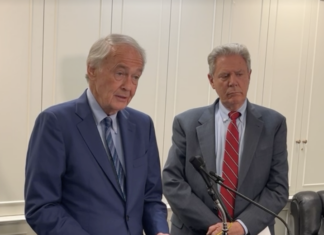By Daria Jankiel
Last month, the Azerbaijani government hosted a conference on the “illegal occupation of Mayotte by France.” It was a curious gathering: over a dozen activists from the Comoros, a tiny country comprising a cluster of islands between Madagascar and Mozambique, pitching up in Baku, a capital in the Caucasus. It resulted in a memorandum of cooperation with a group advocating the return of one island, Mayotte, from France to the Comoros. It was also followed by a communication campaign on various social media channels aimed at Comorians. Curious though it was, the conference pointed to Russia’s growing influence over some of Europe’s far-flung outposts.
The Union of the Comoros is a long way from Europe. But its distant location and modest size should not discourage European policymakers from paying more attention to the archipelago, as it is located at an important crossroads in the Indian Ocean and has proven to be a loyal ally to the West. It comprises four islands. Three of those are Comorian territory and the fourth, Mayotte, is a French overseas territory over which the Union claims sovereignty.
In a 1974 referendum, the majority of Comorians chose to quit France, but Mayotte voted to remain with the former colonial power. This was confirmed in a 2009 referendum when it chose to become an overseas department. Both referendums are rejected by the Comorian government, as well as the United Nations and the African Union which recognize Mayotte as part of the Comoros.
Half century on, the Baku Initiative Group (BIG), launched in 2023, is seeking to confirm the claim. It purports to be an international NGO “dedicated to fostering international partnerships in the fields of decolonization and human rights” but is funded by the government of Azerbaijan and has links to various other independence movements, notably in New Caledonia, another French territory.
Those who returned from Baku characterized the BIG event as a major step towards the return of Mayotte to the Union of the Comoros and a “relaunch of the debate on the international level.” While it may not necessarily be any kind of step towards the return of Mayotte to the Comoros, the conference was certainly a step towards further destabilization of Comorian attitudes towards France and, by extension, Europe.







